04/08/2020
Water Project
Innovation
Water treatment 4.0, between artificial intelligence and predictive technologies
Water treatment 4.0, between artificial intelligence and predictive technologies The watchword is innovation. To protect the environment and those who live in it, and to provide quality services. That's always been our belief. But there's more. We need to add another watchword: resilience, the ability to cope with change. And when we speak of climate change, we have learned that innovation and resilience are inseparable. The most modern technologies allow us, in fact, to face sudden changes, turning to prevention, the ability to predict causes and consequences, acting in advance. Image_psbo.png Following this principle, and as the second-ranking Italian operator in terms of volumes of water sold, we have earmarked Euro 830 million for smart technologies in our Business Plan for 2023. In fact, the networks and plants of the water cycle are subjected to increasing stress due to the ongoing climate change, and only our ability to adapt and innovate, has made us an Italian excellence in the industry. The investments we have made are 20% higher than the Italian average - almost Euro 176 million in 2019 alone – and reaffirm our commitment to a circular and regenerative economy, starting with water. In particular, by complying with the requests of the United Nations Global Compact on the sustainable management of water resources, we remain committed to continuously innovate the service to achieve its gradual decarbonisation. This happens not only by using only renewable energy but also through energy efficiency projects and optimisation of the processes involved in the treatment. There are two virtuous examples we are particularly proud of, the Modena treatment plant and that of Granarolo dell'Emilia (Bologna). THE SMART TREATMENT PLANT IN MODENA Blue water, clear water. This is the refrain that welcomes to Modena's smart treatment plant. Its new predictive system, unique in Italy, enables us to improve the quality of the water we return to the environment and to further reduce the energy consumption of our wastewater treatment plant. Here, technological innovation, integrated systems, and efficient use of resources are at the forefront. The project, developed together with Energy Way (the company that develops mathematical models for the efficient and sustainable development of businesses), created a system capable of controlling the oxidation process, a fundamental phase of the wastewater treatment cycle, anticipating the needs of the plant's activities. In fact, the requirements vary according to the water flow rate and the concentration of organic pollutants. The smart controller anticipates, 30 minutes in advance, the condition of the plant and acts beforehand to avoid the concentration of pollutants or energy peaks. The pilot project has yielded positive results, which we are proud of. The Modena treatment plant, which can cope with the needs of 500,000 inhabitants, recorded a 16% decrease in energy used in the oxidation process, compared to a traditional control system, and a further 8.1% decrease in the presence of nitrogen in the outgoing water (a parameter already below the regulatory limits). WELCOME TO CONSTANCE, PROTOTYPE OF THE GRANAROLO DELL’EMILIA TREATMENT PLANT It's just been born, but it's looking very promising. We are talking about CONSTANCE (COntrollo iNtelligente e geSTione Automatizzata per il trattameNto di aCque rEflue). The system is the fruit of a partnership between Hera Group and ENEA (Ente per le Nuove tecnologie, l'Energia e l'Ambiente), is based on machine learning technologies, and can reduce energy and water treatment plant management costs by more than 30%. The prototype has reached a level 7 technological maturity and is ready for industrialisation; the first tests were successfully carried out in our treatment plant in Granarolo dell'Emilia (Bologna). CONSTANCE's main innovative feature enables us to remotely manage multiple treatment plants and to estimate in real-time the percentage of pollutants entering the plant, such as nitrogen, reducing them and thus returning cleaner water. "At Hera, we place technological innovation among the fundamental pillars of our management and development strategy. With this in mind, in 2017 we formed a partnership with ENEA to build projects of common interest," says Franco Fogacci, Water Director of Hera. "The experimental test project of ENEA's CONSTANCE controller at our treatment plant will allow us both to further develop skills, know-how, and transfer new technologies into real applications on an industrial scale, for the benefit of citizens and the environment", he concludes.

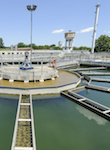

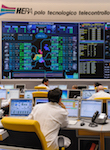
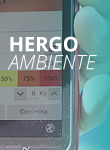
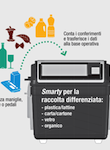

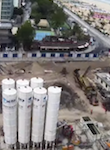
.png/02684bcc-be33-3bb3-daf4-5f1a2d9dac74)
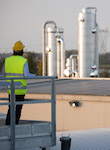
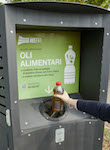

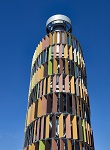

.jpg/468d051b-ba80-83a6-359d-7ef55eefd940)
.jpeg/1d0e0770-1094-b22b-fce4-099f27c72978)